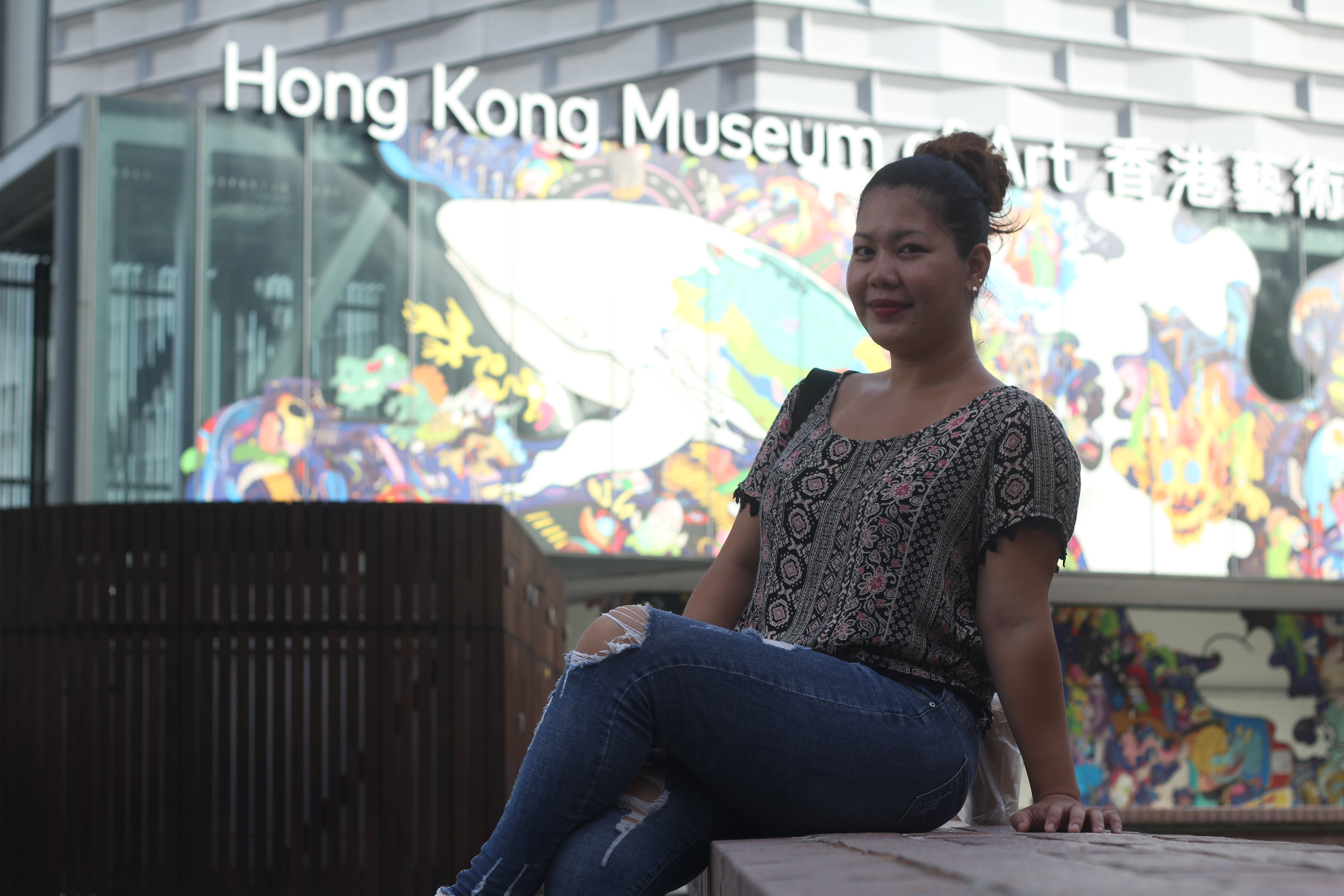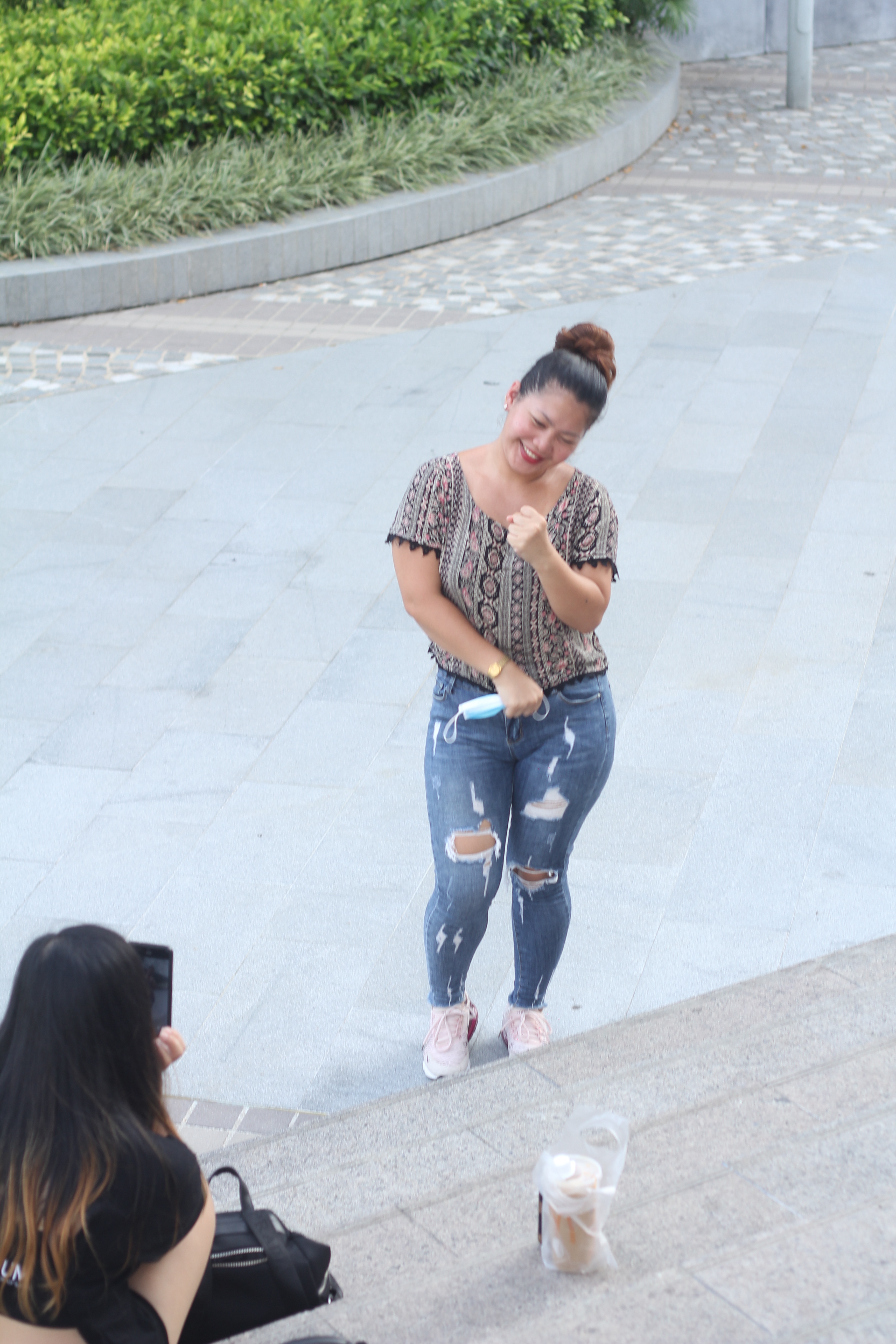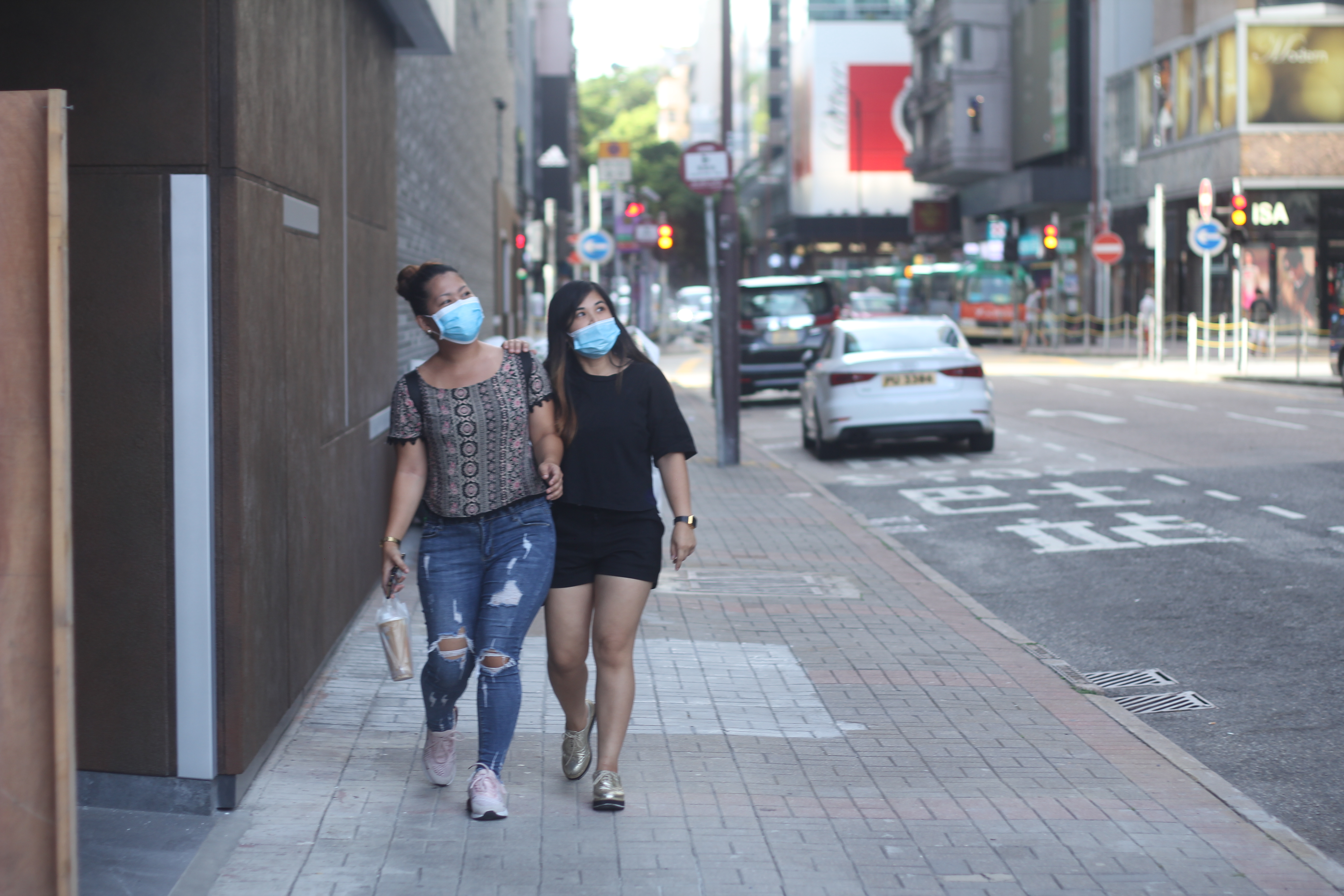TikTok Connected Hong Kong’s Domestic Workers to Family and Friends. Now It’s Gone.
August 6, 2020 Off By Chad de GuzmanIt was just another TikTok challenge. You had to bite at the brim of your hat and tilt your head up as fast as possible to flip it squarely atop your head. From her employer’s house, Edelmei Bartolo tried the trick with a frilly pink hat. Her phone was already recording.
She launched the hat up with confidence but one of its frills latched onto the braces on her mouth, so it hit her face. Bartolo posted the video on TikTok under the handle @emzbart26 with a warning: “You should not copy everything that’s trending.”
“I was about to delete the video,” Bartolo told VICE News. “And then when I saw there were a lot of comments, a lot of views, I got fascinated. Sometimes what generates hits are what you least expect. So I continued with that until I got more followers.”
That video changed the game for Bartolo, 33, a mother of two, from Guagua, Pampanga in the Philippines. She only had 116 TikTok followers in late 2019 but earned over 6,000 in just two months. Most of her fans are Filipino domestic workers in Hong Kong, like her.
Bartolo is overwhelmed with her online fame.
“One time, we went to the beach, and someone noticed me, saying, ‘Hey, our idol is here,’ And I thought, ‘Oh, you know me,'” she said.
TikTok was a hit among the over 200,000 Filipino domestic workers in Hong Kong. The craze was so big that they formed online communities to boost each other’s accounts. Some even printed T-shirts with TikTok's logo, hoping to wear it as a group when social distancing measures ease. Bartolo was part of a group of 30 women who helped each other film videos but other communities had as many as 250 members.
The app has made influencers out of Filipino women in Hong Kong who just wanted to use their free time to relax through skits, songs, and dances. Such was the case for Jobille Paloma, who moved to work in Hong Kong from the Philippines in 2017. She’s still shocked when some of her over 20,000 followers approach her for a photo.
“I didn’t expect that this would be the outcome of the things that I do [on TikTok]," she said.
Paloma, 29, goes by the handle @dove837. In a year, she created an account three times, but it was this, the latest one she started in April, that really took off.
For an hour every morning, after her employers and their kids leave for work and school, she would film up to six TikTok videos. She danced in her bedroom or reacted to online haters. On her days off, she lip synced and danced to Bollywood music near the harbor in the shopping district Tsim Sha Tsui, which helped her gain Indian fans. But Paloma said she didn’t do it for fame.
“TikTok was important to me because it was one way for me to overcome depression,” Paloma said. “It helped me smile again.”
She said she lost confidence in herself after her husband cheated on her and that TikTok made her happy again.
Meanwhile, for 28-year-old Cristyn Vicente, TikTok was for making friends. Transportation in Hong Kong could be expensive and social distancing measures have made it even more difficult for her to go out and meet people. But on her TikTok @tyntynsexy, where she posted videos of beach trips and dance routines with other Filipinos, she had over 14,000 followers around the world.

"They love what I’m doing, they love how I act, they think I’m funny," Vicente said. “Of the 14,000 followers I have on TikTok, why couldn’t I find a boyfriend from them?” she joked, yelling by the harbor.

TikTok was also a diary of what it’s like to live as a migrant worker in Hong Kong. Some domestic workers upload dance clips with their employers. One meme shows them caught in the act of filming for TikTok, and their employer asking, “Work, or terminate?” Another trend has them showing what they normally eat in a day, like instant noodles, canned goods, and rice paired with soy sauce, coffee, or bagoong (shrimp paste).
Some videos are more serious, like one Paloma posted about studying for an English proficiency exam after a long day of chores. She needed this to move to Canada, a dream she shared with Bartolo, who has already applied for work there.
Bartolo also posts similar content, talking about her aspirations and how they can dream, despite the discrimination domestic workers experience.
"People often think when you're a domestic helper, you belong to the lower classes," she said. "Just because you're a domestic helper?... Just because you didn't finish schooling it, doesn't mean you should be ridiculed."
TikTok was also an unexpected respite amid the issues plaguing Hong Kong. The city was the site of months of pro-democracy protests in 2019 before becoming one of the first places hit by COVID-19 in early 2020. A study last February found that migrant workers, like Bartolo and Paloma, are among the most susceptible to mental health issues amid the pandemic because they fear losing their income and their freedom from the workspace.
For many Filipinos working in Hong Kong, TikTok was a form of therapy.
“Every time I make videos, I forget about the things that stress me out, and I feel that time just passes by so quickly,” Paloma said.

But now this safe haven is gone.
On June 30, Beijing passed a sweeping national security law that threatens Hong Kong’s democratic privileges as a semi-autonomous Chinese territory. The law purportedly targets secession, subversion, terrorism, and foreign interference in the city. Critics, however, fear it’s Beijing’s way to stifle pro-democracy movements in Hong Kong.
With this comes heightened monitoring of social media posts, requiring companies to hand over user data to the police. Google, Facebook, and Twitter have refused to do this. They are still accessible in Hong Kong, but some think this could lead to the government blocking certain content. TikTok, which is owned by Chinese company ByteDance, immediately removed the app from Hong Kong, where it has been inaccessible since July 9. TikTok is under scrutiny over concerns that it may be sharing user information with Chinese authorities, but the short-form social video platform has denied this.
TikTok’s pullout has left many Filipino domestic workers without an outlet for creativity and a source of relief.
"It's the only thing that helped to kill my homesickness," Vicente said.
"I was looking for it. When TikTok disappeared, I felt really sad," shared Bartolo.
Now they’re looking for new platforms to share their content. Bartolo tried the Singapore-based Likee, which essentially functions like TikTok, but found it inaccessible days later. Then she turned to Snack Video, another short-form video platform, but she did not get as many followers there.
“[T]he emoticons, the filters on TikTok are better,” she said.
But another concern looms. That with TikTok’s departure, other big social media companies could follow suit.
“If other big tech companies choose to leave Hong Kong, then it means that Hong Kong will become another Chinese city — without the freedom to access information, and the free flow of information will come to an end,” said Glacier Kwong, a digital rights activist from Hong Kong.
Kwong said that internet users in Hong Kong will become “second class netizens” if the city enters the “Great Firewall.” However, if the firms do choose to leave, Kwong said this guarantees that user data will not be handed over to the Chinese or Hong Kong government.
Rumors of Facebook’s pullout abound online. This worries Filipinos in Hong Kong, who rely on social media to get in touch with loved ones back home.
For Bartolo and her friends, the thousands of likes and followers on TikTok don’t mean much. Bartolo said it’s the videos she gets to film in Hong Kong along with her kids in the Philippines that she’ll miss.
“We can only go home once a year depending on how strict the employer is, and in one year, you only have seven days,” Bartolo said. “This is our bonding time so that my children don’t miss me that much.”
